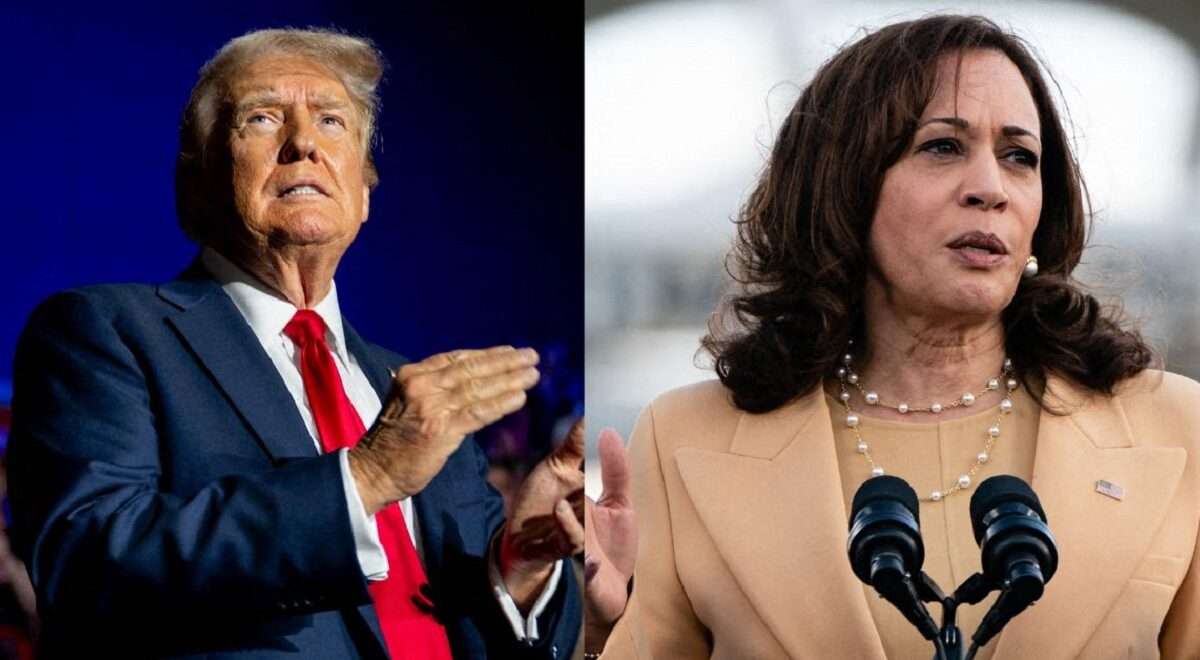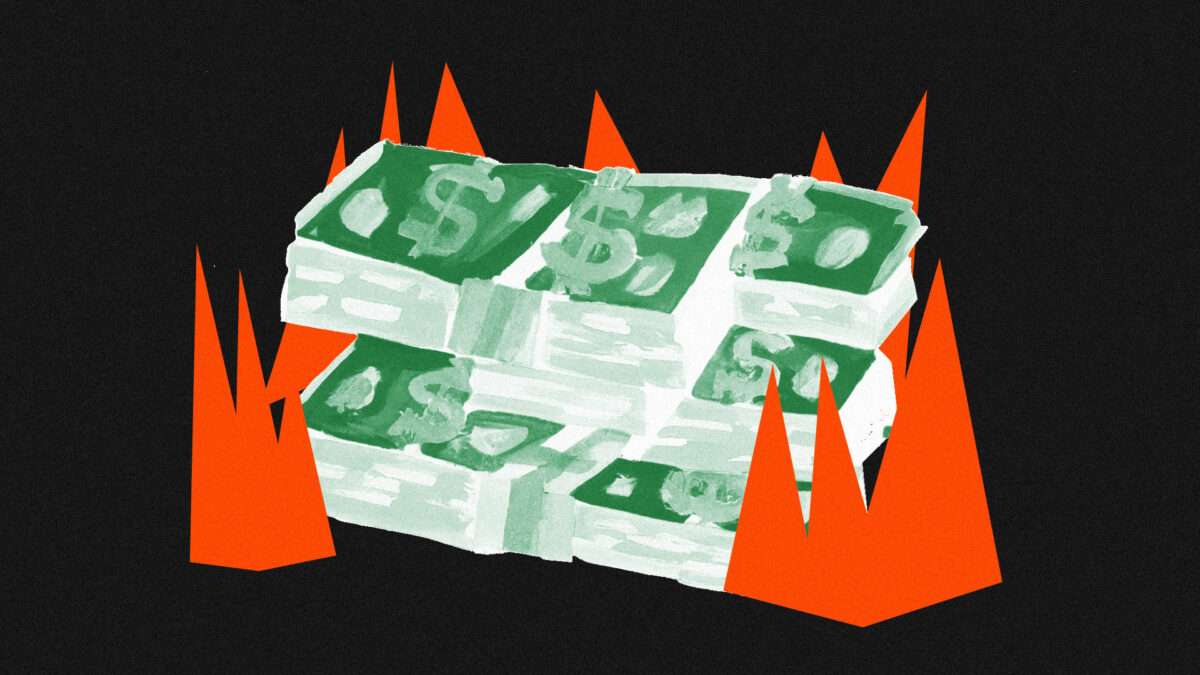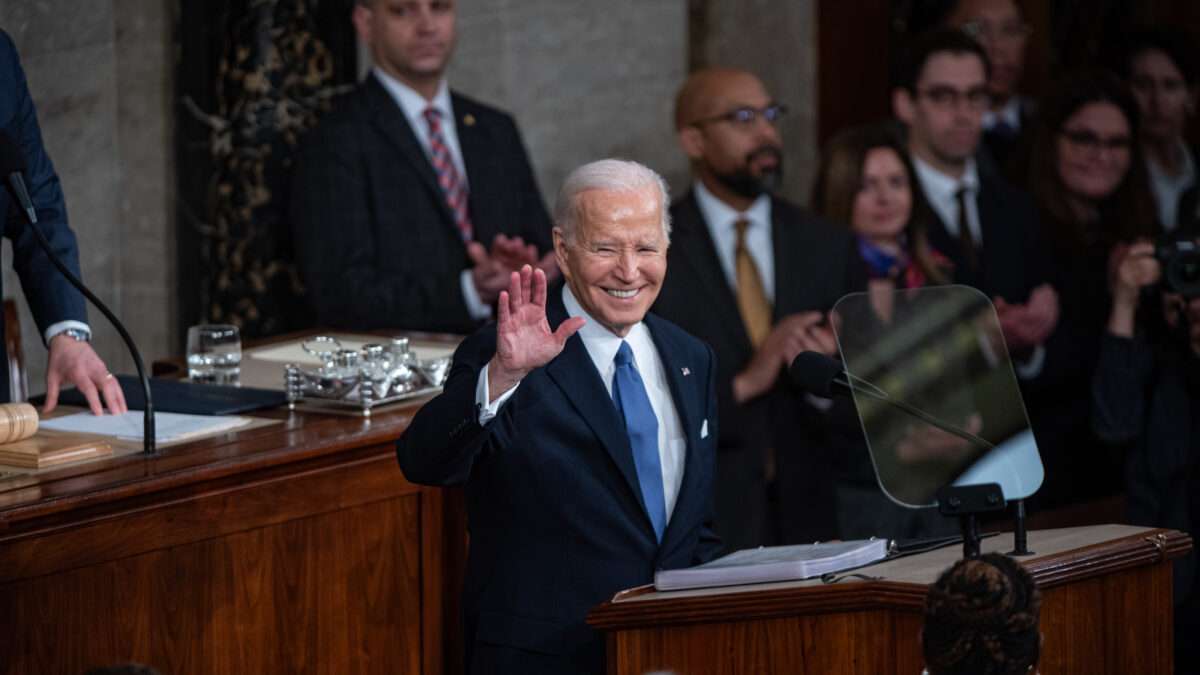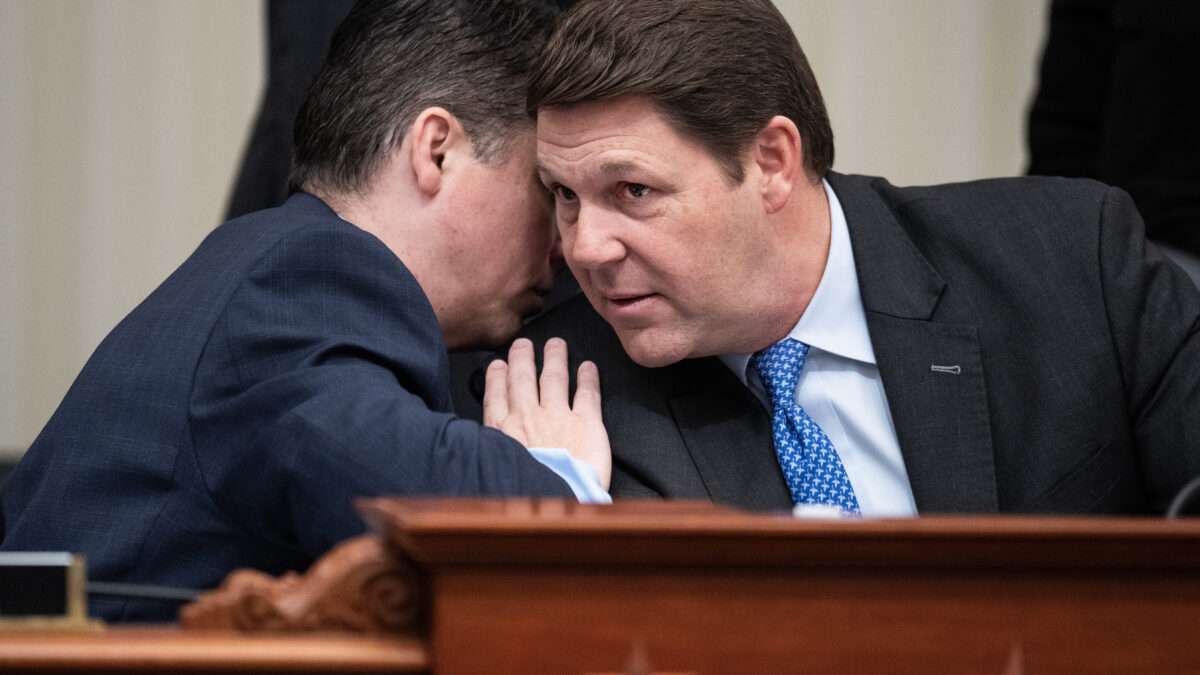Trump and Harris Are Just Making It Up as They Go

A few minutes before 10 a.m. on Wednesday, former President Donald Trump dropped a plan to completely overhaul the relationship between millions of older Americans and the federal government.
"SENIORS SHOULD NOT PAY TAX ON SOCIAL SECURITY," Trump shouted from his Truth Social account.
If implemented, that would be a hugely expensive policy change. According to one quick estimate by a former White House chief economist, it would reduce federal revenue by $1.5 trillion over 10 years and would add $1.8 trillion to the national debt. (The extra cost is the result of interest on the new debt that would be racked up in the absence of that revenue.) It would also accelerate Social Security's slide into insolvency. And, obviously, it would be a big tax break for Americans who collect Social Security checks—but not a tax break that would be particularly good at fostering economic growth.
Despite all that, the most notable thing about Trump's announcement was what it didn't include. There was no attempt to reckon with those figures, for example. No surrogates were dispatched to explain why this change is necessary or good for the economy or country. No press releases went out. There was, of course, no attempt to explain what government programs would be cut to offset the drop in revenue. For that matter, there had been no discussion of this idea at the Republican National Convention. It was not mentioned in Trump's (long) acceptance speech and was not included in the party's platform.
Like so much else in the Trump era, this looks like an idea that went from the former president's head to his social media account with very few stops in between.
There is something to be said for that degree of—let's say—transparency. If nothing else, it is quintessentially Trumpian: hastily conceived and not deeply considered, more of a marketing slogan than substance. Let's just call this what it is: a nakedly political play to win the votes of Social Security–collecting Americans.
Coming as it did on Wednesday morning, the "no taxes on Social Security" plan stood in stark contrast to the news the Trump campaign had made just one day earlier. On Tuesday, Trump's campaign had officially (and gleefully) sunk the Heritage Foundation's "Project 2025"—a 900-page document in which the conservative think tank had outlined an extensive policy plan for Trump's prospective second term. The project had been headed by Paul Dans, who had served in the Trump administration, and was central to the institutional-wide pivot toward populism that Kevin Roberts, Heritage's president, had executed in recent years.
In a statement, two of Trump's top campaign officials didn't merely bury Project 2025 but also issued a threat.
"Reports of Project 2025's demise would be greatly welcomed and should serve as notice to anyone or any group trying to misrepresent their influence with President Trump and his campaign—it will not end well for you," said Susie Wiles and Chris LaCivita.
Translation: How dare anyone try to substitute actual policy substance for whatever random thought might fall out of the former president's head on a Wednesday morning?
Roberts' mistake "was thinking that Mr. Trump cares about anyone's ideas other than his own. He governs on feral instinct, tactical opportunism, and what seems popular at a given moment," wrote the Wall Street Journal's editorial board in a scathing response to the news of Project 2025 being scuttled and that Dans had resigned from Heritage. "The lesson for Heritage, and other think tanks, is that it's better to stick to your principles rather than court the political flavor of the day."
Amen to that.
Meanwhile, Vice President Kamala Harris has launched her campaign by veering hard into an almost Trump-like policy nihilism of her own. Having already tried to memory-hole her track record as the Biden administration's so-called "border czar"—read Reason's Liz Wolfe if you need to catch up on that controversy—Harris is now seemingly rewriting her positions on a bunch of other things too.
For example, Harris was a co-sponsor of the Green New Deal when she was a member of the U.S. Senate in 2019. She voiced her support for the progressive environmental package while campaigning for president that same year.
Now, she's backing away from it. This week, a spokesperson for the Harris campaign told the Washington Examiner that Harris no longer supports the federal job guarantee—a promise that the federal government would provide jobs with "family-sustaining wages" to anyone who wanted one—that was a key feature of the Green New Deal.
As the Examiner notes, Harris has also "backed away from her endorsement of eliminating private healthcare plans as part of a Medicare for All proposal. Her campaign also told The Hill that she will not seek to ban fracking if she is elected. That was after previously telling CNN while running for president 'There's no question I'm in favor of banning fracking.'"
Maybe this is Harris embracing her philosophy of being "unburdened by what has been." Maybe she's simply taking a page from Trump's book—after all, the former president has never paid much of a price for making it up as he goes along.
For both Trump and Harris, simply telling voters what you think they want to hear is possibly the most direct route to winning an election. But such a cynical approach to campaigning sidelines any discussion of policy—and means the election is likely to be decided on far stupider grounds.
The post Trump and Harris Are Just Making It Up as They Go appeared first on Reason.com.





